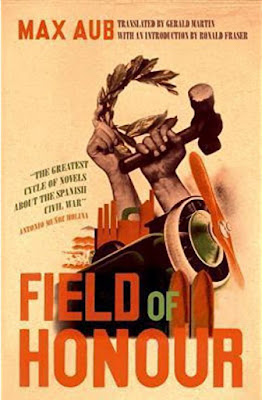First Person
All of Richard Flanagan’s novels are different. Death of a River Guide takes a tour through a drowning man’s Tasmanian family history; Gould’s Book of Fish is Flanagan’s masterpiece – a historical tale of a convict forger and fantasist. Then there was Wanting set in Dickens’ London and Bass Strait; the just-ahead-of-its-time tale of political manipulation in the age of terrorism –TheUnknown Terrorist; and finally a well-deserved Booker winner, The Narrow Road to the Deep North where torture on the Thai-Burma death railway is set against the present life of Dorrigo Evans. The earlier novels are more obviously ‘literary’ (I haven't read The Sound of One Hand Clapping but its description sounds poetic). Flanagan seems adept at a more popular mode in Terrorist and Deep North (or, at least, a more straightforward one). If Carey is Australian progressive rock; and Winton is Australian folk; then Richard Flanagan is a one-man Supergroup, comfortable enough in his skin to shed it from time to time.
First Person – given this
characterisation – is thus both a surprise and not a surprise. The story is a fictitious version of events
that Flanagan went through, it seems, while writing Death of a River Guide; struggling to make ends meet; “compromising”
as a writer by ghosting a memoir about an Australian crook, 1980s-style. As Kif
Kehlmann invents a life for a chameleon who seems as soulless as the age (‘Seigfried
Heidi’), he feels both threatened and invaded, as if the darkness within Heidi
is creeping in to his own heart. Writing in the first person is a challenge at
the best of times – when the story teller confesses to selfishness and blind
rage, a failing marriage, the temptations of corporate publishing (already
fading by the 1980s) and a thuggish-past, even a loyal Flanagan reader
struggles at time to sympathise and connect.
Flanagan
knows how to layer this darkness and slowly raise the tension, however, until
finally things do get to where they need to be – the heart of darkness at the “centre”
of this de-centred character and narrative. Whether it was the best way to get
there is another matter. This – in my view – is not Flanagan at his best. But
maybe it’s a novel he had to write – a confession to the ugliness of the
Australian soul, which he partly must own, as all of us must at some point. And
beyond this – to New York and the age itself, the age of ‘literary selfies’:
Everyone wants to be the first person. Autobiography is all we have. I
mean, isn’t that what you do in reality TV?
I don’t know what I do, I said. I just go in each morning and make it
up.
That’s where we’re different then, Emily said. I don’t make it up. I had
stories. We all hate them. We’ve heard them all before. We need to see
ourselves.
That Flanagan kept his feet on the ground in “real life” is
a credit to him; his narrator Kehlmann has taken another path to television writing and
fame. Now Kehlmann writes in the first person. The biography on Heidi was made up.
The fiction of his own life is closer to the truth.




Comments
Post a Comment